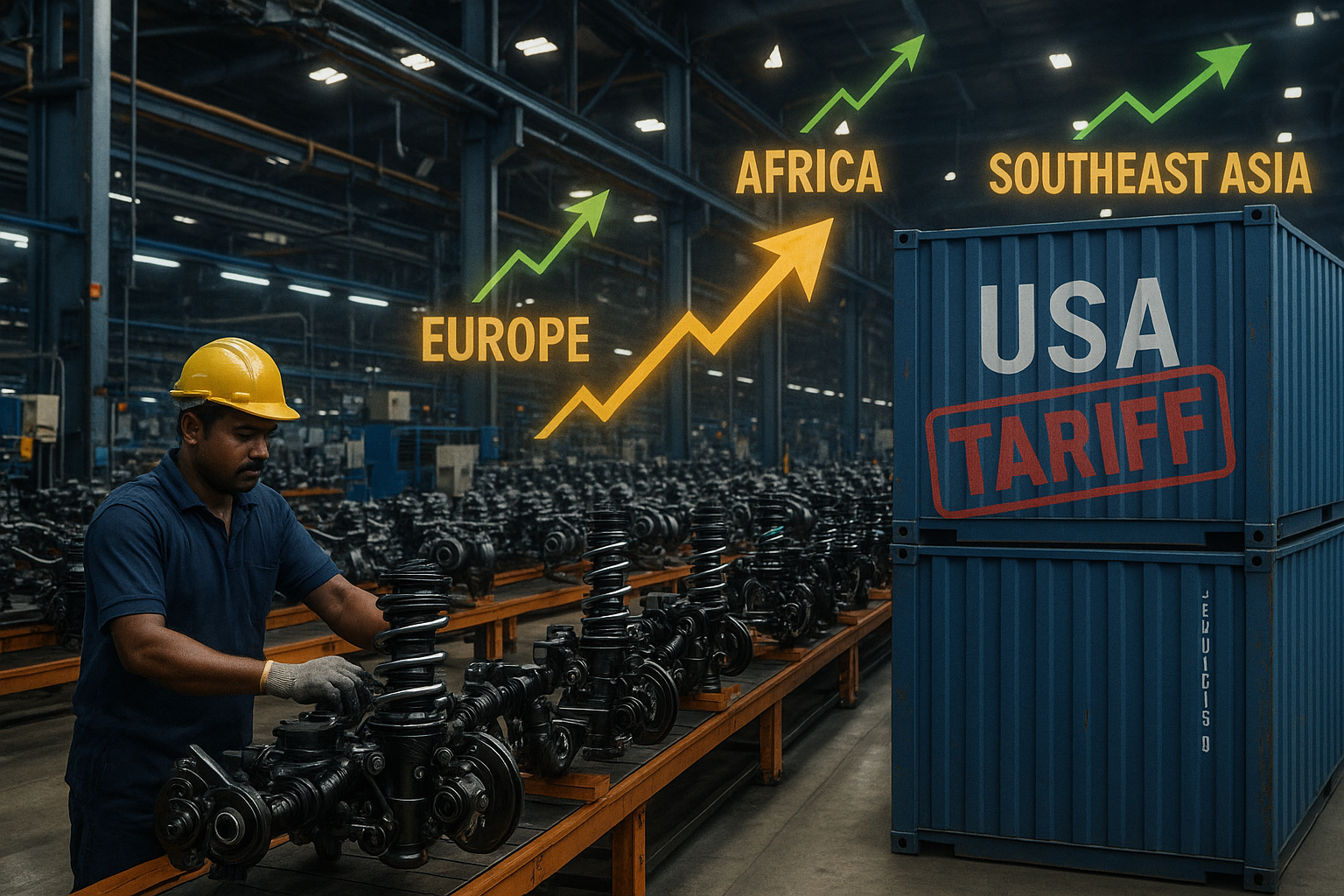India’s auto component industry remains optimistic about export growth despite facing fresh challenges from U.S. President Donald Trump’s 50% tariffs on Indian goods. Industry leaders believe that competitive pricing, strong global demand, and diversification into alternative markets will help sustain momentum.
The outlook highlights how India’s manufacturing resilience and supply chain integration are enabling exporters to remain confident even in the face of rising trade barriers.
Core Development
According to industry associations and exporters:
U.S. Tariffs Impact: Auto parts exports to the U.S. may see some moderation, but alternative geographies are expected to absorb demand.
Resilient Performance: Exports of components like engine parts, forgings, and electronics continue to show healthy growth.
Diversification Strategy: Stronger focus on Europe, Africa, and Southeast Asia markets to counterbalance U.S. restrictions.
Key Drivers of Confidence
Global Demand Trends: Rising demand for electric vehicle (EV) and hybrid components.
India’s Competitive Edge: Cost-efficiency and skilled labor base remain unmatched.
Government Support: Incentives under PLI (Production-Linked Incentive) schemes providing an additional push.
Stakeholder Impact
Exporters: Auto parts manufacturers expect long-term demand stability despite near-term tariffs.
Global Buyers: Looking at India as a dependable alternative amid supply chain disruptions in China.
Policy Makers: Need to strengthen trade alliances and mitigate tariff fallout with bilateral engagement.
Industry & Policy Reactions
Industry leaders acknowledged tariffs as a short-term headwind but stressed that India’s role in the global auto supply chain is firmly established. Analysts believe that with diversification and ongoing domestic reforms, India’s auto component exports could continue to grow in double digits over the next few years.
Challenges Ahead
Tariff Pressures: Could hurt profitability for smaller component makers heavily reliant on the U.S.
Currency Volatility: Rupee fluctuations may impact margins.
Geopolitical Uncertainty: Persistent trade tensions remain an external risk.
Strategic Outlook
The auto components industry’s optimism reflects India’s transition from cost-driven exports to value-added supply chain integration. Strategic market expansion, policy support, and continued innovation in EV parts will be key to sustaining growth despite tariffs.
Why This Matters
Trade disruptions test the resilience of industries. The auto components sector’s confidence amid tariffs signals India’s growing maturity as a global manufacturing hub — capable of weathering headwinds while expanding its global footprint.












